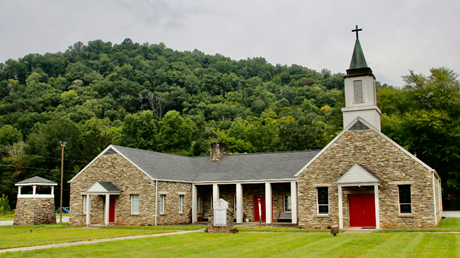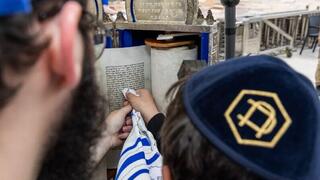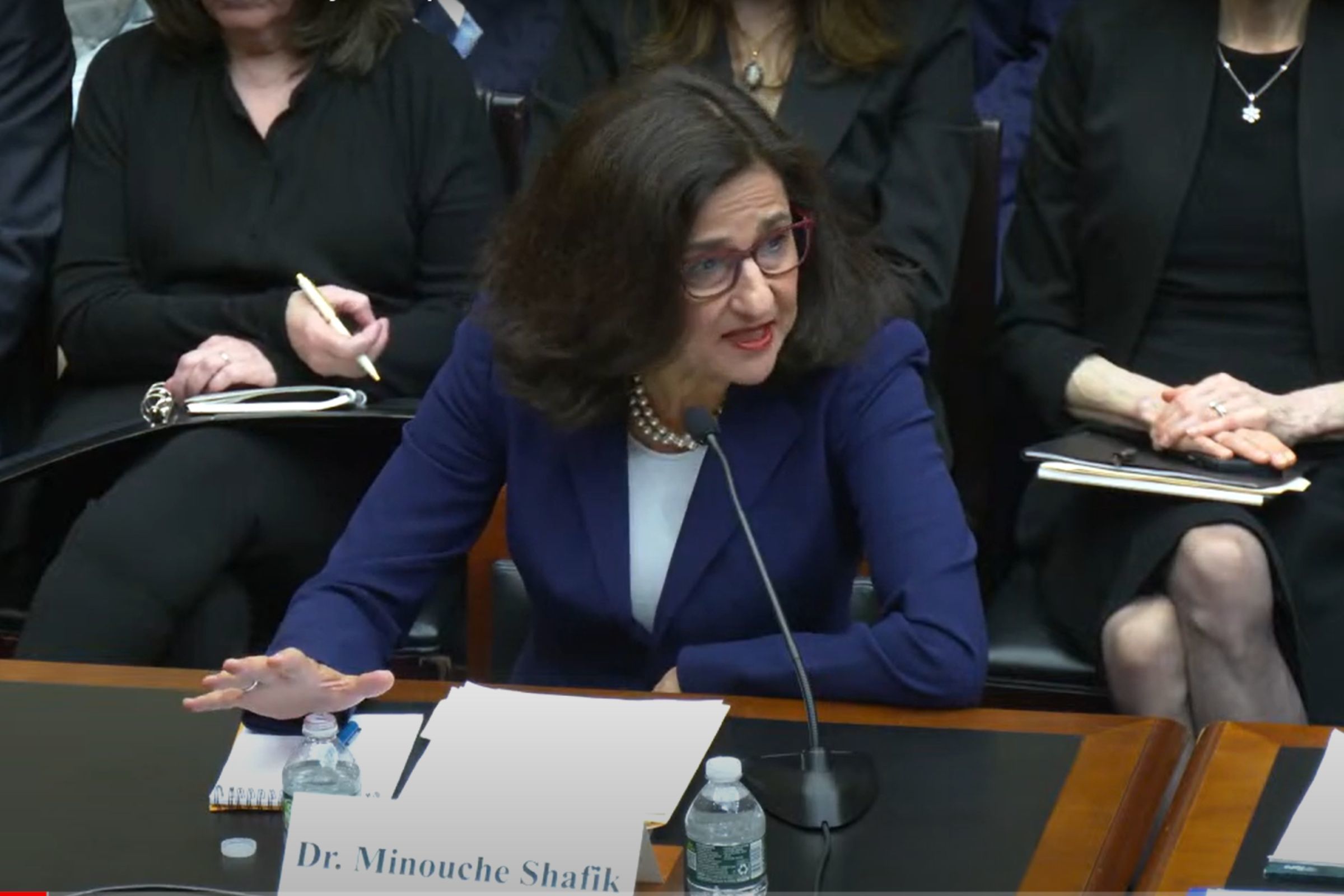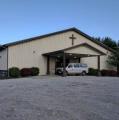Search Results for Who
Links
By Col West
|
Welcome to Alabama Youth Congress.
|
Preaching Christ By All Means Everywhere
|
Articles
Videos
News
Study: 24 percent of clergy in North Carolina are still opposed to same-sex marriage.
 After the departure of thousands of traditionalist United Methodist churches from the denomination over the past five years, it might stand to reason that those congregations remaining in the fold are more progressive and open to ordination and marriage of people in same-sex relationships.But the picture is far more mixed.A new report from the Religion and Social Change Lab at Duke University that looked at disaffiliating clergy from North Carolina’s two United Methodist conferences or regions found that even after the departures, 24 percent of North Carolina clergy remaining in the denomination disagree with allowing LGBTQ people to get married or ordained within the denomination.“At least some amount of ambivalence over LGBTQ+ issues among UMC clergy is likely to persist for years to come,” the report concluded.After a four-year COVID-19 delay and the departure of about 7,600 churches—a loss of 25 percent of all its US congregations—the denomination is likely to reconsider the issue of human sexuality when it convenes its top legislative body April 23–May 3 in Charlotte, North Carolina.Given that the denomination is a worldwide body, with hundreds of delegates from Africa and the Philippines, areas far more conservative in their views of human sexuality, it’s unclear whether the measures stand a chance of passing, even as the US delegation is far more open to such changes.Overall, the Duke report finds that disaffiliating North Carolina clergy were much more politically and theologically conservative than those who chose to remain. Some 85 percent of clergy who left the denomination disagreed with the notion that “all religious leadership positions should be open to people ...Continue reading... After the departure of thousands of traditionalist United Methodist churches from the denomination over the past five years, it might stand to reason that those congregations remaining in the fold are more progressive and open to ordination and marriage of people in same-sex relationships.But the picture is far more mixed.A new report from the Religion and Social Change Lab at Duke University that looked at disaffiliating clergy from North Carolina’s two United Methodist conferences or regions found that even after the departures, 24 percent of North Carolina clergy remaining in the denomination disagree with allowing LGBTQ people to get married or ordained within the denomination.“At least some amount of ambivalence over LGBTQ+ issues among UMC clergy is likely to persist for years to come,” the report concluded.After a four-year COVID-19 delay and the departure of about 7,600 churches—a loss of 25 percent of all its US congregations—the denomination is likely to reconsider the issue of human sexuality when it convenes its top legislative body April 23–May 3 in Charlotte, North Carolina.Given that the denomination is a worldwide body, with hundreds of delegates from Africa and the Philippines, areas far more conservative in their views of human sexuality, it’s unclear whether the measures stand a chance of passing, even as the US delegation is far more open to such changes.Overall, the Duke report finds that disaffiliating North Carolina clergy were much more politically and theologically conservative than those who chose to remain. Some 85 percent of clergy who left the denomination disagreed with the notion that “all religious leadership positions should be open to people ...Continue reading... |
Study: 24 percent of clergy in North Carolina are still opposed to same-sex marriage.
 After the departure of thousands of traditionalist United Methodist churches from the denomination over the past five years, it might stand to reason that those congregations remaining in the fold are more progressive and open to ordination and marriage of people in same-sex relationships.But the picture is far more mixed.A new report from the Religion and Social Change Lab at Duke University that looked at disaffiliating clergy from North Carolina’s two United Methodist conferences or regions found that even after the departures, 24 percent of North Carolina clergy remaining in the denomination disagree with allowing LGBTQ people to get married or ordained within the denomination.“At least some amount of ambivalence over LGBTQ+ issues among UMC clergy is likely to persist for years to come,” the report concluded.After a four-year COVID-19 delay and the departure of about 7,600 churches—a loss of 25 percent of all its US congregations—the denomination is likely to reconsider the issue of human sexuality when it convenes its top legislative body April 23–May 3 in Charlotte, North Carolina.Given that the denomination is a worldwide body, with hundreds of delegates from Africa and the Philippines, areas far more conservative in their views of human sexuality, it’s unclear whether the measures stand a chance of passing, even as the US delegation is far more open to such changes.Overall, the Duke report finds that disaffiliating North Carolina clergy were much more politically and theologically conservative than those who chose to remain. Some 85 percent of clergy who left the denomination disagreed with the notion that “all religious leadership positions should be open to people ...Continue reading... After the departure of thousands of traditionalist United Methodist churches from the denomination over the past five years, it might stand to reason that those congregations remaining in the fold are more progressive and open to ordination and marriage of people in same-sex relationships.But the picture is far more mixed.A new report from the Religion and Social Change Lab at Duke University that looked at disaffiliating clergy from North Carolina’s two United Methodist conferences or regions found that even after the departures, 24 percent of North Carolina clergy remaining in the denomination disagree with allowing LGBTQ people to get married or ordained within the denomination.“At least some amount of ambivalence over LGBTQ+ issues among UMC clergy is likely to persist for years to come,” the report concluded.After a four-year COVID-19 delay and the departure of about 7,600 churches—a loss of 25 percent of all its US congregations—the denomination is likely to reconsider the issue of human sexuality when it convenes its top legislative body April 23–May 3 in Charlotte, North Carolina.Given that the denomination is a worldwide body, with hundreds of delegates from Africa and the Philippines, areas far more conservative in their views of human sexuality, it’s unclear whether the measures stand a chance of passing, even as the US delegation is far more open to such changes.Overall, the Duke report finds that disaffiliating North Carolina clergy were much more politically and theologically conservative than those who chose to remain. Some 85 percent of clergy who left the denomination disagreed with the notion that “all religious leadership positions should be open to people ...Continue reading... |
We must always be people of the Word, but we'll have to reimagine deep engagement with Scripture.
 Christians are readers. We are “people of the book.” We own personal Bibles, translated into our mother tongues, and read them daily. Picture “quiet time” and you’ll see a table, a cup of coffee, and a Bible spread open to dog-eared, highlighted, annotated pages. For Christians, daily Bible reading is the minimum standard for the life of faith. What kind of Christian, some of us may think, doesn’t meet this low bar?This vision of our faith resonates for many. It certainly describes the way I was raised. As a snapshot of a slice of the church at a certain time in history—20th-century American evangelicals—it checks out. But as a timeless vision of what it means to follow Christ, it falls short, and it does so in a way that will seriously impinge on our ability to make disciples in an increasingly postliterate culture, a culture in which most people still understand the bare mechanics of reading but overwhelmingly consume audio and visual media instead.We can see how this literacy-focused idea of Christianity will fail in the future by looking to the past. For most of Christian history, most believers were illiterate. Reading the Bible daily wasn’t an option because reading wasn’t an option.This doesn’t mean Scripture was irrelevant to ordinary Christians’ lives. But the sacred page wasn’t primarily a private matter for personal devotion; it was a public matter heard in the gathering of God’s people for worship. The Bible was the church’s book—a liturgical book, a book whose natural habitat was the voice of Christ’s body lifted in praise. To hear the Word of God, you joined the people of God. Lectors ...Continue reading... Christians are readers. We are “people of the book.” We own personal Bibles, translated into our mother tongues, and read them daily. Picture “quiet time” and you’ll see a table, a cup of coffee, and a Bible spread open to dog-eared, highlighted, annotated pages. For Christians, daily Bible reading is the minimum standard for the life of faith. What kind of Christian, some of us may think, doesn’t meet this low bar?This vision of our faith resonates for many. It certainly describes the way I was raised. As a snapshot of a slice of the church at a certain time in history—20th-century American evangelicals—it checks out. But as a timeless vision of what it means to follow Christ, it falls short, and it does so in a way that will seriously impinge on our ability to make disciples in an increasingly postliterate culture, a culture in which most people still understand the bare mechanics of reading but overwhelmingly consume audio and visual media instead.We can see how this literacy-focused idea of Christianity will fail in the future by looking to the past. For most of Christian history, most believers were illiterate. Reading the Bible daily wasn’t an option because reading wasn’t an option.This doesn’t mean Scripture was irrelevant to ordinary Christians’ lives. But the sacred page wasn’t primarily a private matter for personal devotion; it was a public matter heard in the gathering of God’s people for worship. The Bible was the church’s book—a liturgical book, a book whose natural habitat was the voice of Christ’s body lifted in praise. To hear the Word of God, you joined the people of God. Lectors ...Continue reading... |
 Eitan, son of late Armored Corps reservist Elisha Levinshtern who fell in battle in southern Gaza, called up to Torah at Western Wall; 'The people of Israel continue to celebrate the circle of Jewish life' Eitan, son of late Armored Corps reservist Elisha Levinshtern who fell in battle in southern Gaza, called up to Torah at Western Wall; 'The people of Israel continue to celebrate the circle of Jewish life' |
 Republican and Democratic lawmakers grilled Columbia University President Minouche Shafik about how the university addresses antisemitism, including cases involving faculty members who have publicly referred to Hamas' Oct. 7 massacre as “awesome.” Republican and Democratic lawmakers grilled Columbia University President Minouche Shafik about how the university addresses antisemitism, including cases involving faculty members who have publicly referred to Hamas' Oct. 7 massacre as “awesome.” |



 Links
Links  Articles
Articles  Blogs
Blogs  Videos
Videos  News
News  Colors
Colors 

 New links
New links













